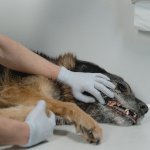World Zoonoses Day Date in the current year: July 6, 2026
 World Zoonoses Day, also known as World Zoonosis Day, is observed annually on July 6. It was created to raise awareness of infectious diseases that can be transmitted from animals to humans and vice versa.
World Zoonoses Day, also known as World Zoonosis Day, is observed annually on July 6. It was created to raise awareness of infectious diseases that can be transmitted from animals to humans and vice versa.Zoonoses (singular zoonosis), also known as zoonotic diseases, are infectious diseases of humans caused by a pathogen that can jump from vertebrate animals to humans and vice versa. Most infectious diseases that affect humans have a zoonotic origin. Some, like HIV, have evolved into human-only diseases, while others still routinely involve transmission from non-humans to humans.
The list of zoonoses is extremely long. Common zoonotic diseases include, but are not limited to, anthrax, bird flu, brucellosis (Mediterranean fever), cat-scratch disease, Chagas disease, COVID-19 (allegedly), several types of encephalitis, hemorrhagic fevers (Crimean-Congo, Dengue, Ebola, and others), leprosy, Lyme disease, rabies, SARS, swine influenza, toxoplasmosis, tularemia (rabbit fever), West Nile fever, Zeke fever, and many more.
Zoonoses can be transmitted through air, direct contact with an animal’s body fluids (saliva, blood, mucus, urine, feces), contact with contaminated objects or surfaces in areas where animals live (indirect transmission), consuming contaminated food (raw or undercooked meat or eggs, raw milk), drinking contaminated water, or via vector species (ticks, mosquitoes, flies).
While some people are more at risk of getting zoonoses (for example, agricultural workers, zookeepers, people living in semi-urban areas, people with limited access to clean drinking water, etc.), anyone can get infected with a zoonotic disease, so it is important to take precautions. Prevention methods for zoonoses depend on the pathogen and its mode of transmission. General guidelines for preventing zoonotic diseases include:
- Keeping your hands clean. You should always wash your hands after being around animals even if you didn’t touch any animals.
- Cleaning up after your pets properly.
- Avoiding animal bites and scratches. If you get bitten or scratched, clean the wound immediately and seek medical attention if you suspect the animal might be sick or the wound isn’t healing properly.
- Preventing mosquito, tick and flea bites.
- Making sure to wash all fresh produce and cooking meat, fish and eggs properly.
- Getting vaccinated against zoonoses that are common in your region and vaccinating your pets.
World Zoonoses Day is observed on July 6 in honor of French microbiologist Louis Pasteur who administered the first vaccine for rabies, a deadly zoonotic disease, on this day in 1885. This vaccination helped save the life of Joseph Meister, a 9-year-old boy bitten by a dog, who would go on to live for another 55 years.
The main goal of World Zoonoses Day is to raise awareness of the danger of zoonotic diseases and educate the general public on the best ways to prevent them, which include not only good personal hygiene and vaccination, but also preventing and managing disease in animals. You can get involved with the observance by making sure your vaccinations are up to date, vaccinating your pets, and spreading the word on social media with the hashtag #WorldZoonosesDay.
- Category
- International Observances
- Tags
- World Zoonoses Day, international observances, awareness days, zoonotic diseases, zoonoses